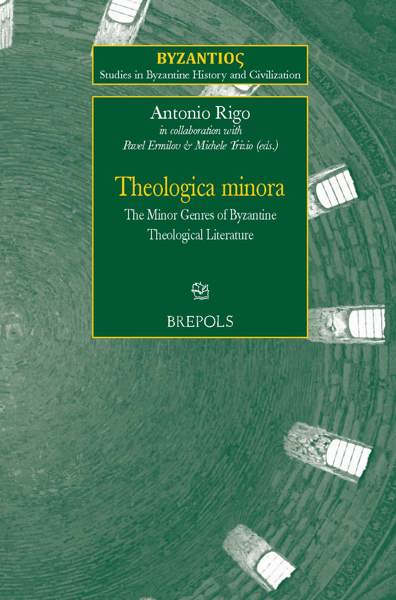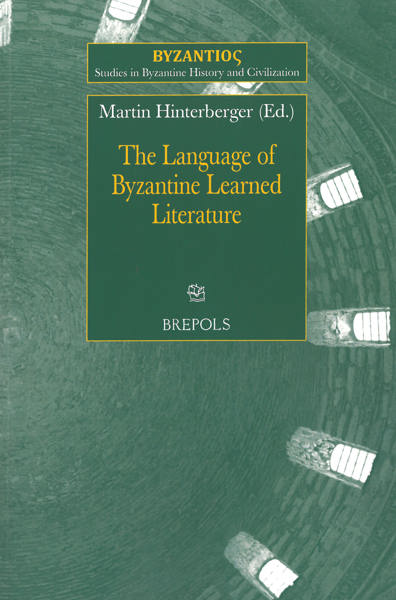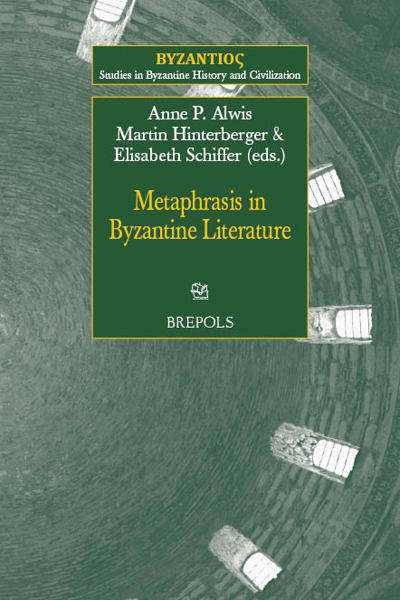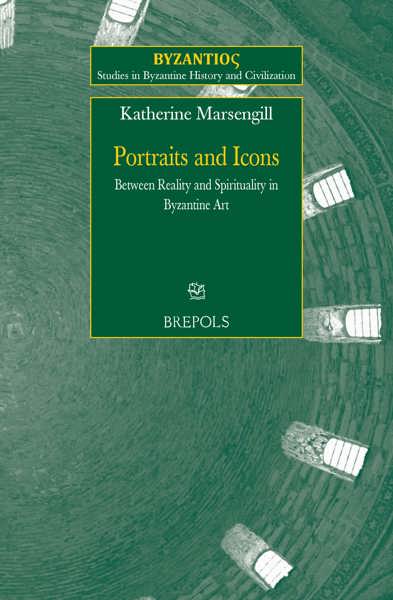
The Language of Byzantine Learned Literature
Martin Hinterberger (ed)
- Pages: vi + 228 p.
- Size:156 x 234 mm
- Illustrations:2 tables b/w.
- Language(s):English, French
- Publication Year:2014
- € 80,00 EXCL. VAT RETAIL PRICE
- ISBN: 978-2-503-55237-8
- Paperback
- Available
- € 80,00 EXCL. VAT RETAIL PRICE
- ISBN: 978-2-503-55263-7
- E-book
- Available
The learned literary language of Byzantium is subjected to new and ground-breaking analysis in this volume
"This is an excellent book and, more important, it is one that substantially promotes the progress towards what has arguably been for many years the greatest desideratum in Byzantine scholarship, viz. a thorough descriptive grammar of the 'high' language in all its many registers." (A. R. Littlewood, in: The Medieval Review, 15.06.09)
"This volume on the language of the Byzantine learned literature fills a gap in the field (...) the contributions are - without exception - of high quality; most are written by the authority on the field (...) this volume will undoubtedly foster more research" (Jorie Soltic, in Medioevo Greco 15, 2015, p. 352-355)
Martin Hinterberger teaches Byzantine literature at the University of Cyprus. His main fields of interest are the language of Byzantine literature and Byzantine emotions. He has also published on Byzantine autobiography, hagiography and vernacular literature.
Built on a highly traditional educational system, the language of Byzantine literature was for the most part written in an idiom deeply influenced by ancient Greek texts and grammatical handbooks. The resulting overall archaizing impression of Byzantine Greek is largely why the language of learned literature – as compared with the relatively well researched vernacular literature – has seldom been taken seriously as an object of linguistic study. This volume combines the expertise of linguists and scholars of Byzantine literature to challenge the assumption that learned mediaeval Greek is merely the weary continuation of ancient Greek or, worse still, a poor imitation of it, while proposing that it needs to be treated as a literary idiom in its own right. The contribution that texts of this kind can offer to sub-fields of Greek historical linguistics is explored using specific examples. Sociolinguistic theory provides a particularly useful framework for a more accurate analysis of the relationship between the vernacular and classicizing varieties of Greek literary language. In addition, the impact of the educational system on the production of texts is examined. In another chapter it is shown that a number of far-reaching assumptions, which originated in the 15th century, about accentuation and the middle voice still tend to colour our understanding of Byzantine, as well as ancient, Greek. Other chapters focusing on particles, the dative and the synthetic perfect reveal that Byzantine authors, while of course influenced by the living spoken language, used their classical linguistic heritage in a creative and innovative way.
Io Manolessou, Learned Byzantine literature and modern linguistics
Marilena Karyolemou, What can sociolinguistics tell us about learned literary languages?
Antonia Giannouli, Education and Literary Language in Byzantium
Jacques Noret, Byzantine accentuation: In which respects and why it differs from modern ‘scholarly’ (and occasionally incoherent) accentuation.
Kateřina Bočková Loudová, On the Category of Particles in Byzantium
Staffan Wahlgren, Case, Style and Competence in Byzantine Greek
Martin Hinterberger, The Synthetic Perfect in Byzantine Literature




